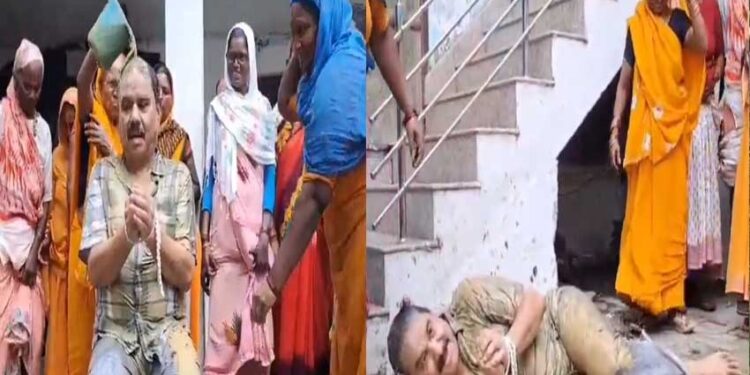Syed Hasan Imam (English: Syed Hasan Imam, born – 31 August, 1871, Neora, Patna district; died – 19 April, 1933) was a High Court judge, social reformer and President of the Indian National Congress.
Hasan Imam was born on August 31, 1871 in Neora, district Patna. His father was Imdad Imam. The family belonged to the respectable, educated middle class, following the Shia Muslim faith. After completing his schooling, his studies were often interrupted due to poor health, so he went to England.
Hasan Imam went to England in July 1889 and joined the Middle Temple. While there he actively campaigned for Dadabhai Naoroji during the 1891 general election in England. He was called to the bar in 1892; the same year he returned home and began practising in the Calcutta High Court. Hasan Imam was a judge of the Calcutta High Court. On the establishment of the Patna High Court in March 1916, Imam resigned as judge of the Calcutta High Court and began practising in Patna.[1]
Hasan Imam was nominated a member of the Legislative Council of Bihar and Orissa in 1921. He took part in political affairs from 1908 onwards. In October 1909 he was elected President of the Bihar Congress Committee and the following month he presided over the fourth session of the Bihar Students’ Conference. He resumed political activity on a larger scale after resigning from the judgeship in 1916. Hasan Imam was one of the prominent Indian leaders summoned by Montagu, the Secretary of State for India, in November 1917 and listed by him among the “real giants of the Indian political scene”. Hasan Imam presided over the special session of the Indian National Congress held at Bombay in 1918 to consider the Montagu-Chelmsford Reforms Scheme. It was a very important and very difficult session as there were differences of opinion on the merits of the scheme. He played a moderate role in it.[1]
As a staunch constitutionalist he opposed the ideology of the Non-Cooperation Movement. Hasan Imam took part in the Khilafat Movement. He joined the Civil Disobedience Movement in 1930 and was elected Secretary of the Swadeshi League formed in Patna. He actively campaigned for the boycott of foreign goods and the use of Khadi. Earlier he was the real architect of the success of the boycott of the Simon Commission in Bihar in 1927. Hasan Imam particularly advocated social reforms, the improvement of the condition of women and the depressed classes. As a member of the Tikri Board Trust he promoted schemes for the education of girls. He exposed the economic exploitation of the country under both Company and Imperial rule. He was the Chairman of the Board of Trustees of Behre, the leading English daily of Bihar. He was also one of the founders of the successful Searchlight.[1]
Syed Hasan Imam died on April 19, 1933 and was buried in Japala, District Shahabad.










